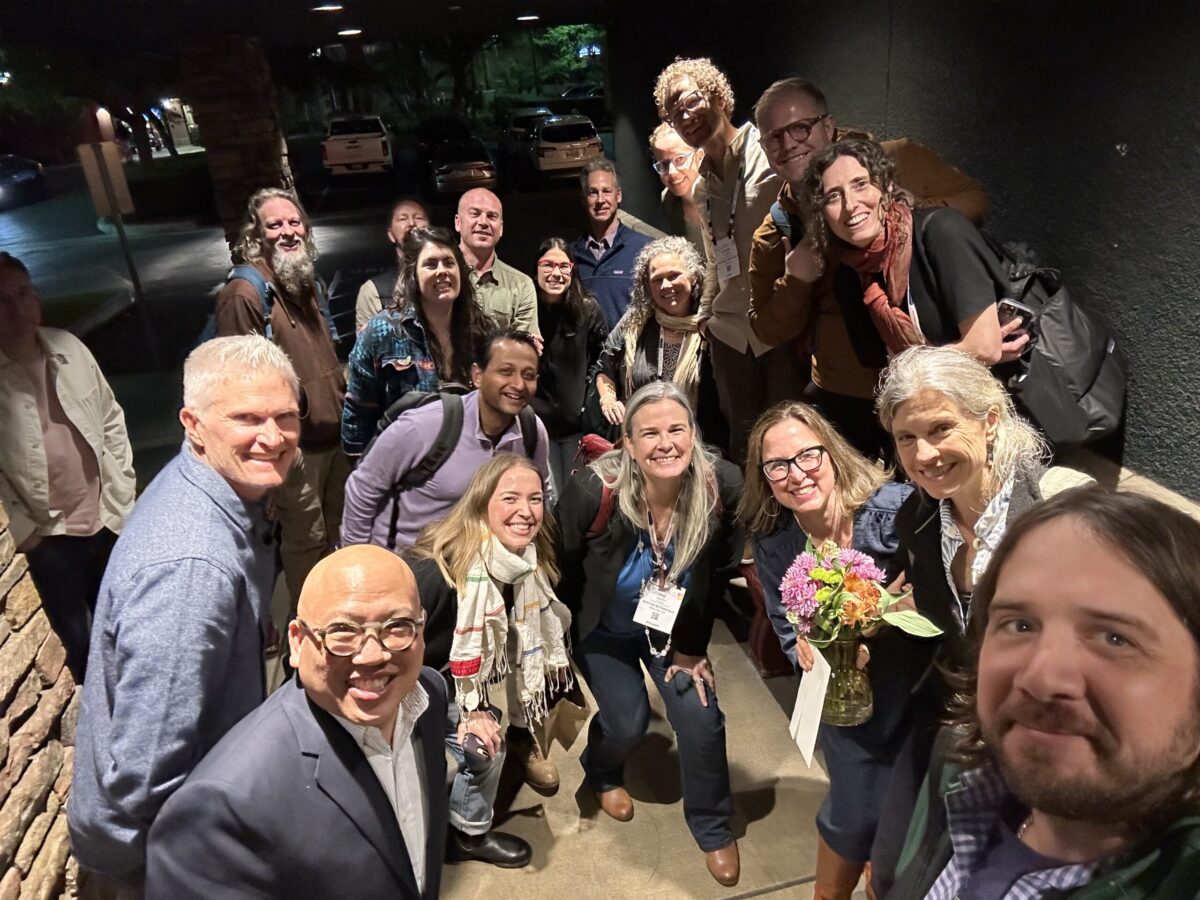Companies

There are a growing number of collaborative initiatives in the natural products industry. The Sustainable Herbs Initiative is the only collaborative initiative focusing specifically on the herb and dietary supplement industries. SHI has emerged as a thought leader in the herbal products industry that is creating the space to find solutions to seemingly intractable problems and helping to move these solutions forward. We are seeking support to establish an endowment that will allow us to further develop and implement this work above and beyond what company membership makes possible.
Membership in SHI provides professional development, peer-to-peer learning, and collaborative opportunities for your team. As importantly, your support will help create an herbal products industry that is healing for people, plants, and the planet from the source to the finished product.
Members and supporters of the SHI will receive the following:
PROFESSIONAL DEVELOPMENT/COLLABORATION
SHP Learning Lab
The SHP Learning Lab is an online facilitated series structured on the principals and practices of Theory U, facilitated by Julie Arts, a senior Faculty member and consultant with the Presencing Institute, and myself. The Presencing Institute offers a model of awareness-based systems change that works at getting to the root causes of systemic change and identifying key steps to address those issues. The Learning Lab focuses on both the specific content and also on the value of deepening relationships among participants and looking at our own values and assumptions about the challenges and solutions that are needed. The 2024 Winter series will be organized around these key questions:
- How can sourcing medicinal plants enhance the wellbeing and prosperity of people and plants around the world?
- How can we encourage the herbal products industry to remain rooted in respect for the plants, people, and the planet?
- What changes are needed?
- How can we, as a group of committed stakeholders from around the world, collaborate to make those changes?
Desired outcomes:
- Shift in mindset
- Shift in relationships: Pushing boundaries of partnerships as an outcome. from extraction-transactional to care for wellbeing.
- Shift in action confidence
SHP Learning Journey
For 3 ½ days, 22 stakeholders from the botanical industry explored the people, places, and plants that are central to the herb trade from Appalachia. Though based in Appalachia, the issues we explored: the challenges of wild harvesting, low prices for raw material, over harvesting, care for migrant farmworkers, care for the soil, are common in the herb trade as a whole.
Our goal in the first Learning Journey was to approach these seemingly intractable challenges in in a different, more systemic way. We hoped to inspire change by listening to the voices of those we don’t always listen to: the people at the edges of the system, the places we visited, and the plants. Beyond analytics and industry interests, we wanted to open our hearts and connect with the earth. In this way, we hoped to tap into the inspiration and courage needed to act.
This experience exceeded our expectations in terms of deepening relationships among participants and engaged the group in taking action to tackle the challenges identified. We will continue to hold two Learning Journeys per year, one for alumni only and a new one for newcomers and alumni.
2024 Learning Journeys
- June 2024 Learning Journey for New Participants, SW Oregon
- Southwest Oregon is the home of some of the leading farms in the US supplying certified organic and now ROC certified herbs. There also is a strong wild harvesting community. Hosting companies will be Pacific Botanicals, Banyan Botanicals, East West Herbs. Mountain Rose and Herb Pharm will also be involved.
- November 2024 Alumni Learning Journey, hosted by Doselva in Nicaragua, 15-20 participants (for Alumni of the first Learning Journey)
- Doselva, founded by Jefferson Shriver, is a primary processing company working with coffee farmers to diversify their livelihoods by growing turmeric, ginger, and now other spices.
WORKING COLLABORATION AND PEER-TO-PEER LEARNING
It is well known that collaboration is essential to tackle the challenges we face as a world. Yet, it is less clear how to truly collaborate in a competitive environment. Building on the trust and deeper systemic understanding established in the Learning Lab and on the Learning Journeys, working groups provide opportunities for members to share ideas and develop ways to collaborate on ideas specific to the botanical industry. Some of these challenges include building ecological, economic, and social resilience in herbal supply networks, measuring and reducing Scope 3 emissions, and broadening our understanding of the business case for investing in social and ecological sustainability.
These opportunities include ongoing meetings of the SHP Learning Lab and working groups that are focusing on researching key sourcing challenges and identifying strategic actions that companies can take collectively or individually to address those challenges. These working groups will produce blueprints to guide action on the key issues.
Learn more about current working groups here.
SHP TOOLKIT SKILL SESSIONS
In Brown bag discussions, guest speakers present on a specific topic related to implementing guidelines from the SHP Toolkit. One goal of this series is to create a place where industry veterans can share their knowledge with those newer to this work.
Sustainability Stories. The Sustainable Herbs Program produces stories and videos on sustainability challenges on the ground and as an SHP member, you support these stories. Depending on interest, we will host a quarterly meeting to highlight specific examples and stories to share via marketing teams.
Please contact SHP Director, Ann Armbrecht if you would like information about becoming an SHP Member.
Here’s what our members have to say



